Dear readers, With the launch of e-newsletter CUHK in Focus, CUHKUPDates has retired and this site will no longer be updated. To stay abreast of the University’s latest news, please go to https://focus.cuhk.edu.hk. Thank you.
Lin Zhixiu in Six Objects
Director of CUHK Hong Kong Institute of Integrative Medicine looks back on his formative years in London
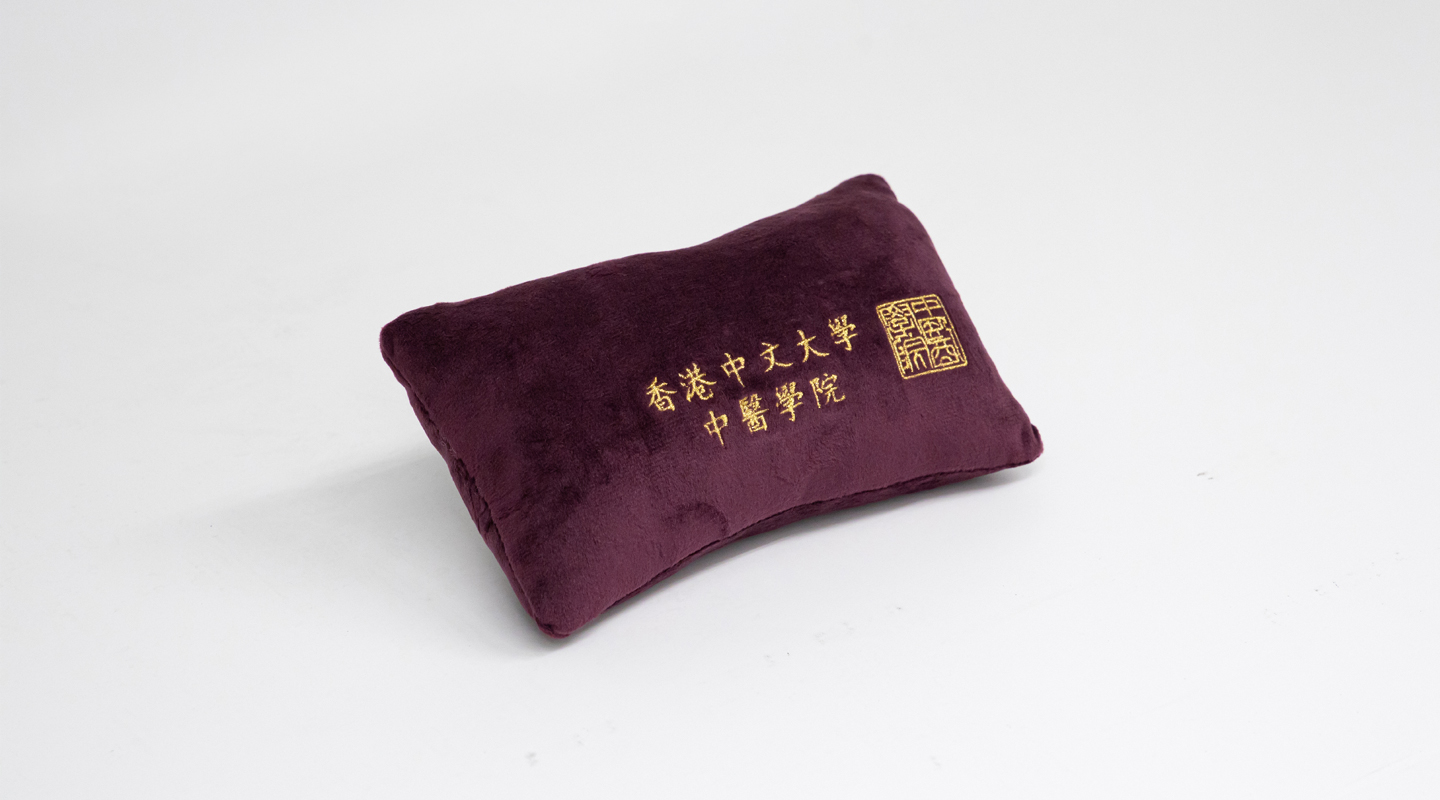
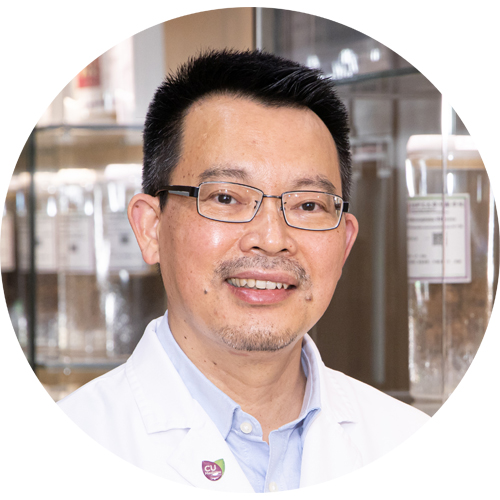 The pulse pillow is a symbol of Chinese medicine as well as my profession
The pulse pillow is a symbol of Chinese medicine as well as my profession
I was born and raised in a rural village in Hainan. My father died young due to medical negligence, so it was hoped that someone from my family could become a doctor to prevent such a tragedy from happening again. I used to get pretty good grades at school, but not enough to get myself into the best western medical school in Guangdong, so I went for the second-best option which was Guangzhou University of Traditional Chinese Medicine.
Graduating in 1987, I worked as a clinical Chinese medicine practitioner for three years, then I wanted to make a move to the United Kingdom and see the other side of the world. I settled in London, taking English classes in a language school in the morning and working in the afternoon till late. My medical qualification was not recognized there, so I worked as a deliveryman for Chinese restaurants in London’s Chinatown. One day when I sent eggs to a Hunan restaurant, I learnt that the boss there suffered from back and leg pain. I told him I was a Chinese medicine practitioner, and volunteered to do massage and acupuncture therapies for him. Incidentally, their kitchen was recruiting, so the boss hired me. I started with washing dishes and made my way to assistant chef.
In the early 1990s, BBC played a prime-time documentary about treating eczema with Chinese medicine. It drew a rush for Chinese medicine in the UK, and new Chinese medicine clinics mushroomed in Chinatown. My former boss at the delivery company also opened one with his partner, and employed me as a massage and acupuncture therapist. It was then that I finally practised my profession again.
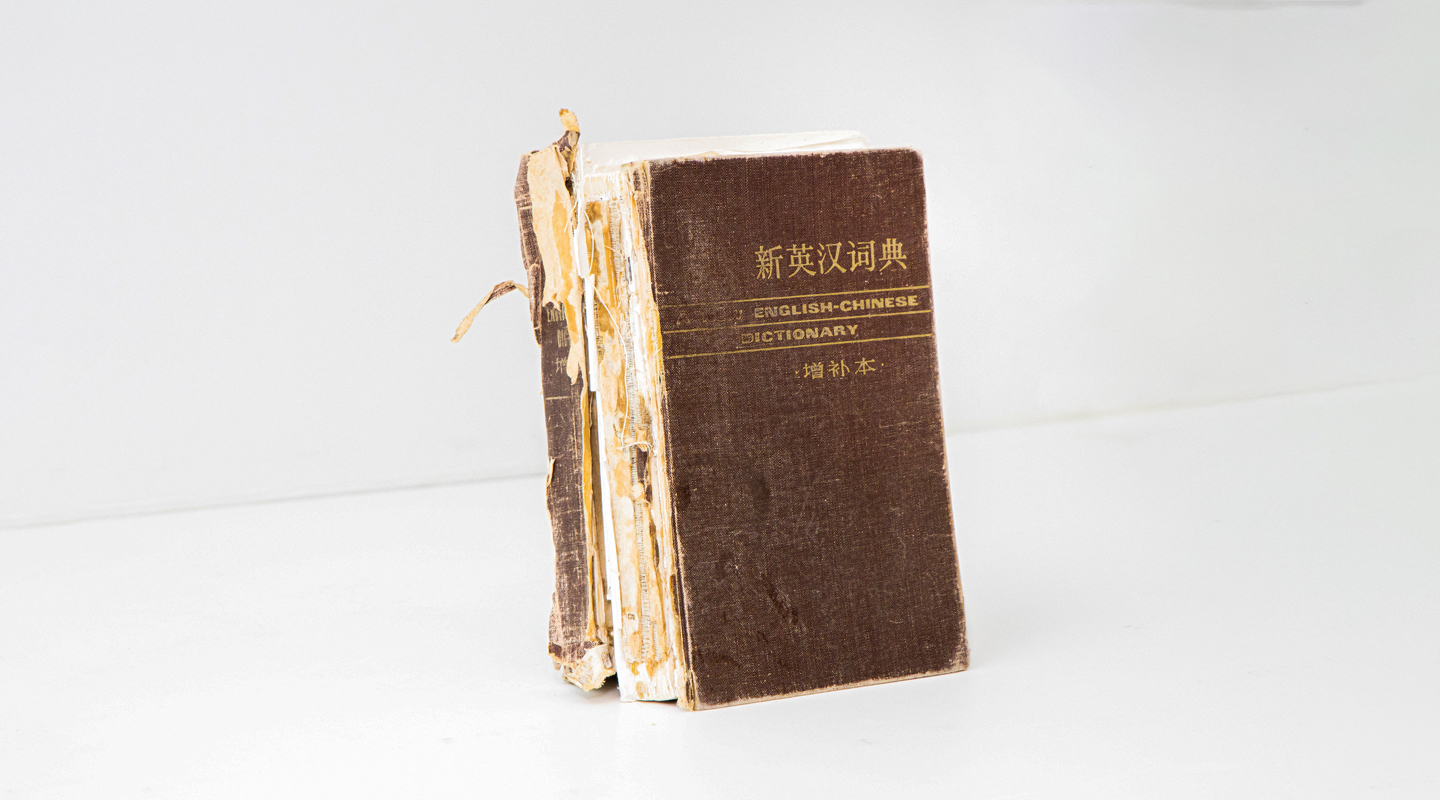
I started my formal training in English at the age of 26. Every page in this English-Chinese dictionary is filled with my annotations
From primary school to university, I had not been formally trained in English. Before I left for London, my elder brother gave me his English-Chinese dictionary. I even made a fool of myself at the immigration control. Standing in front of me were an old couple from Guangxi who flew in to visit their daughter in London. The couple did not speak English, so the immigration officer asked me to come forward and translate for him. I heard the officer say the word ‘daughter’ and felt I must have learnt it before, but I could not figure out the meaning. That’s how awful my English was. When I arrived in London, I devoured everything in English, reading the news extensively and checking the dictionary for any new words. This dictionary had been with me for decades until I came to CUHK in 2003. It kept falling apart and I kept patching it up. It is a testament to my tough journey of learning English.
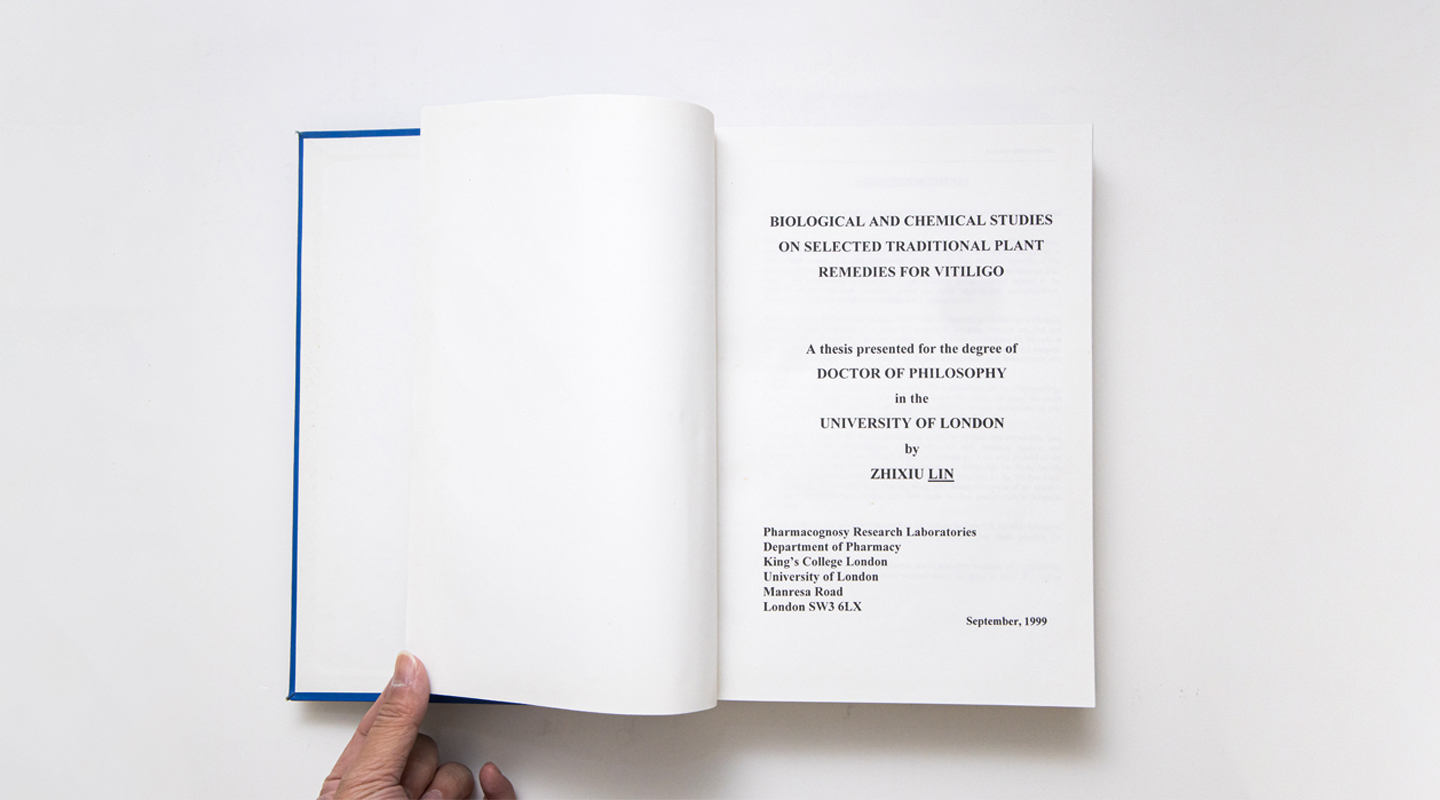
This doctoral thesis changed my life and gave me a passport to the academia
While I worked as a Chinese medicine practitioner in London’s Chinatown, a partner and mentor at the clinic appreciated my hard work and asked what my next plans were. I wanted to return to school at the time, but had no connections. She then kindly introduced me to a professor at King’s College London. After passing examinations for three preparatory courses, I joined the professor’s research team to pursue doctoral studies on treating vitiligo with traditional plant remedies. The process involved extracting and analysing substances of Chinese and Indian herbs, and we found that it is piperine, the alkaloid responsible for the pungency of black pepper, that can stimulate the reproduction of pigment cells in the skin.
The leap from Chinatown to King’s Road was as dreamlike as it was invaluable. I was immensely grateful for the opportunity and often burnt the midnight oil at the laboratory, coming back on weekends as well. The thesis took me tremendous effort. At first, the English words on the page were glued together by Chinese grammar. With my supervisor editing my work patiently word by word, my academic writing improved significantly, and my thesis was eventually awarded the Best PhD Thesis of the Year. I owe a lot of what I am today to the dedication and mentorship of my supervisor.
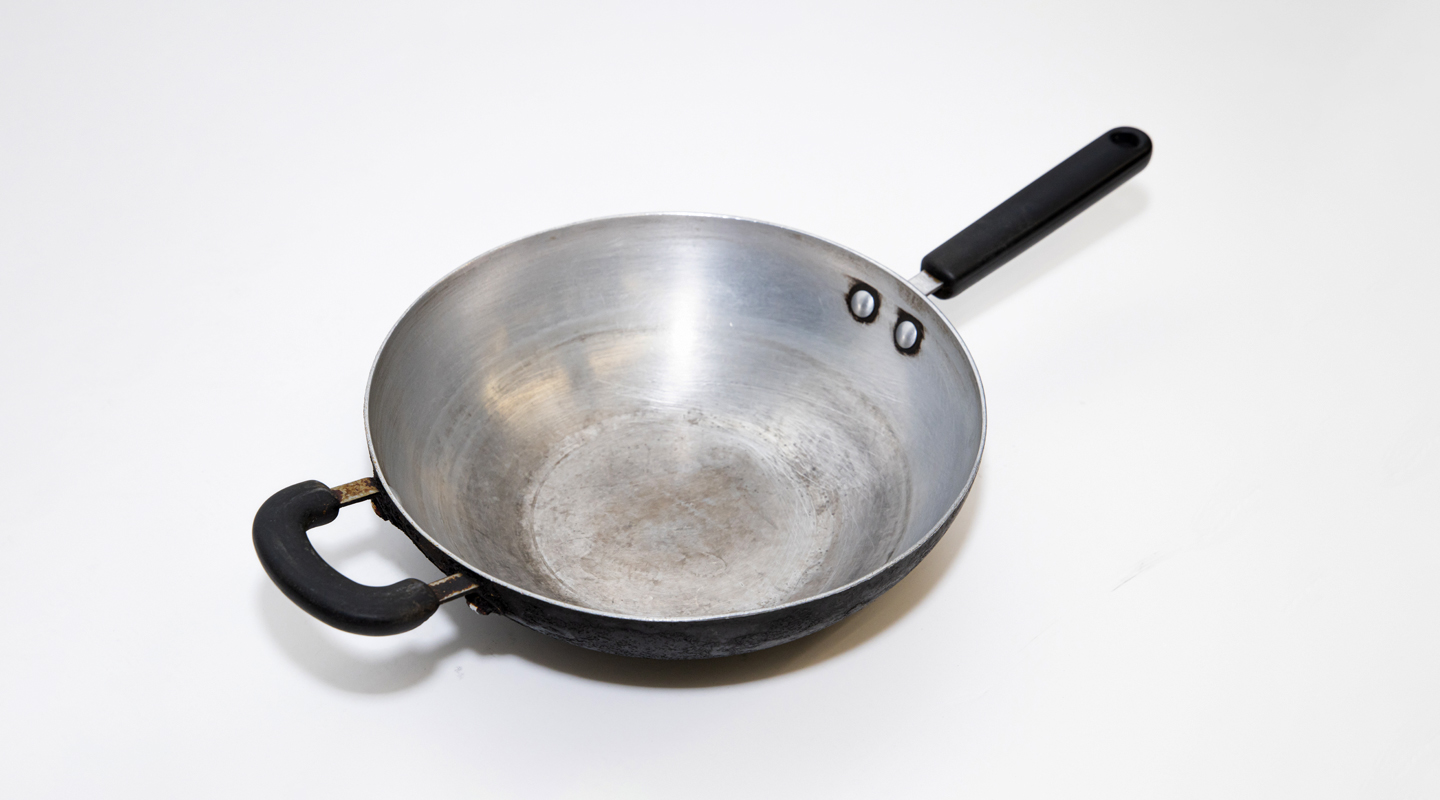
I bought the frying pan in 2003 when I moved in to Chung Chi College of CUHK
Upon completing my PhD, I taught for four years at Middlesex University of the UK. My mother was turning 80 at the time and I hoped to be closer to home, so I applied for the Macau University of Science and Technology. Shortly afterwards, I was invited to join the CUHK School of Chinese Medicine by its then-Director, Prof. Che Chun-tao. Of course I was happy to join this world-renowned comprehensive research university, where I got to draw on my teaching experience, continue with clinical practice and, most importantly, capitalize on the excellent platform and resources for academic research and publishing.
I developed a flair for cooking from all those years working at the Hunan restaurant in London, whose chefs were able to transform most ordinary ingredients into savoury dishes. I have been using this frying pan for more than a decade and the coating was long lost. Some of my signature dishes are steamed fish, braised pork knuckle, baked lobster with ginger and scallions, steamed eel with soy sauce, braised pork ribs, roast chicken, braised duck with taro and the list goes on. Preparing all the dishes for a party on my own is a piece of cake for me. I care about good food, so I believe were I not a scholar, I would very likely have ventured into the culinary industry.
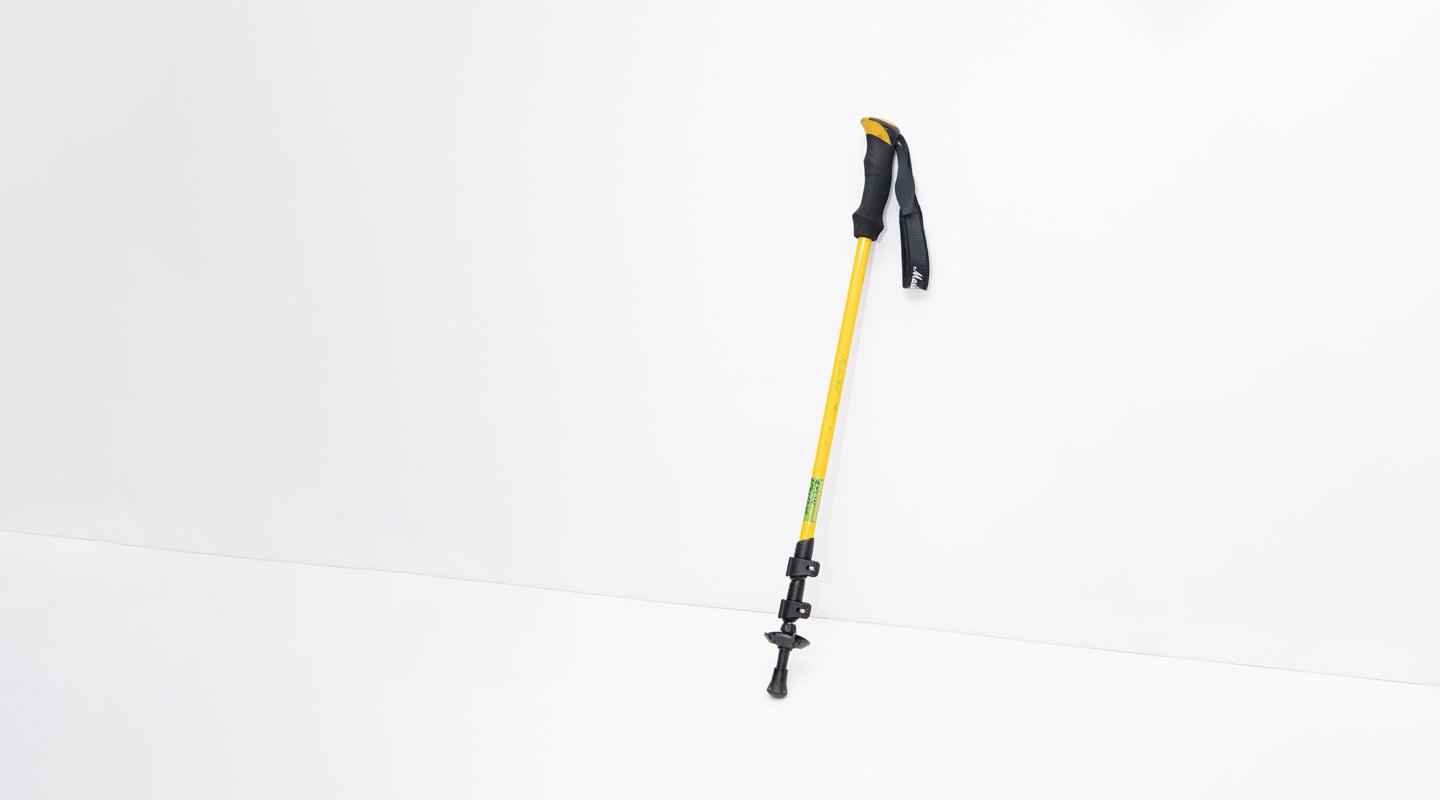
Every weekend, I bring this trekking pole for hikes with my family
Like most office workers, I spend a lot of time at my desk. From the perspective of Chinese medicine, sitting for extensive periods of time is bad for muscles. One must balance sedentariness with regular exercise. It is winter now and hiking is best in the sunny and cool weather. My family and I would pick trails with lower levels of difficulty, marvelling at the scenic views of Hong Kong. Tai Po Kau is my favourite place, as it is sheltered and cool even in summer. I also love the trails of Lion Rock, Shing Mun Reservoir, Tai Tam Reservoir and Black’s Link, all of which are mesmerizing and easy.
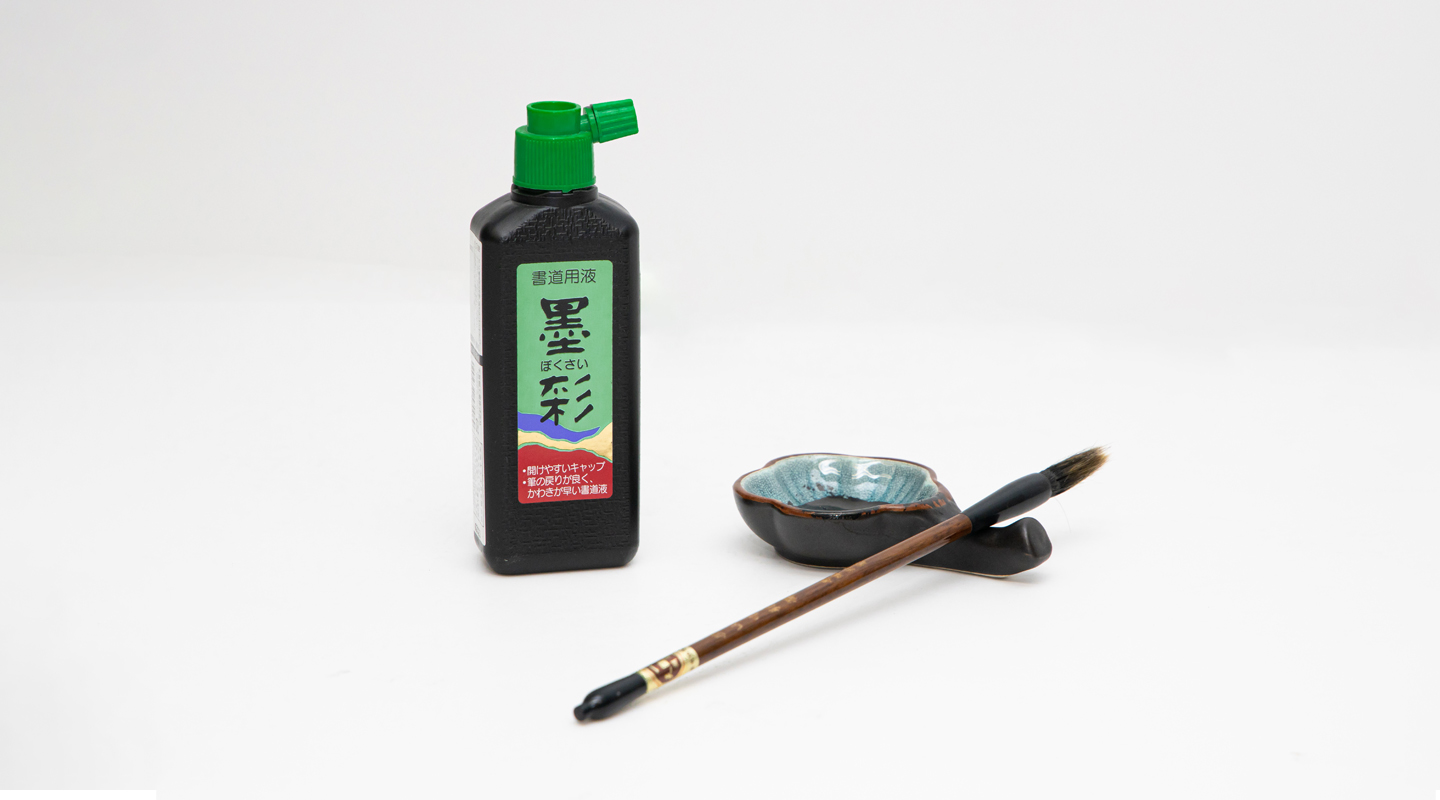
Chinese calligraphy is my favourite hobby
Chinese medicine practitioners write a lot to give prescriptions and often have beautiful handwriting. A zealous writer since a young age, I practised penmanship in high school and recently took up Chinese calligraphy from the calligraphy class of Chung Chi College. It is a great activity for mindfulness and self-cultivation.
Like calligraphy, Chinese medicine is a gem of Chinese culture and a bridge that exports our heritage abroad. If we manage to validate the effectiveness and safety of Chinese medicine through methods of modern clinical science, it will greatly facilitate western societies’ acceptance of Chinese culture. This is also the mission that the CUHK Hong Kong Institute of Integrative Medicine works towards.
As told to christinenip@cuhkcontents
Photos by Eric Sin